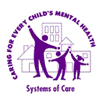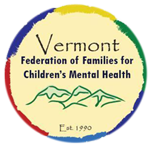Descriptions of Caregiver Measures
Caregiver Information Questionnaire, Revised (CIQ–R)
Questions that describe the child and family. Topics covered include:
- Demographic information
- Risk factors
- Family composition
- Physical custody of the child
- Child’s mental and physical health service use
- Caregiver employment status
- Attitudes about coercion in receiving services
- Child’s presenting problem(s)
- Intake: 46 questions, with subparts, 22 minutes
- Follow-Up: 46 questions, with subparts, 17 minutes
- Caregiver and Staff as Caregiver versions
Behavioral and Emotional Rating Scale—Second Edition, Parent Rating Scale (BERS–2C)
- Identifies youth’s emotional and behavioral strengths
- Youth rate behaviors on a scale from not at all like me to very much like me
- 57 items, 8 open-ended questions, 10 minutes
- Completed at intake and follow-up
- Copyrighted instrument
Caregiver Strain Questionnaire (CGSQ)
Assesses difficulties, strains, and other negative effects related to caring for a child with emotional and behavioral problems.
- 21 questions, 10 minutes
- Completed at intake and follow-up
- Only administered to caregivers (not staff as caregivers)
Child Behavior Checklist 6–18 (CBCL 6–18)
Standardized measure of children’s symptomatology.
- Caregivers’ report of their child’s problems, disabilities, and strengths
- Caregivers say how often statements describing behaviors are true for their child
- 17 social competence items, 113 behavior problem items, 20 minutes
- Completed at intake and follow-up
- Copyrighted instrument
Columbia Impairment Scale (CIS)
Evaluates four basic areas of child’s functioning:
- Interpersonal relations
- Broad psychopathological domains
- Functioning in job or schoolwork
- Use of leisure time
- Caregivers rate how much of a problem each item is for their child
- 13 questions, 5 minutes
- Completed at intake and follow-up
Cultural Competence and Service Provision Questionnaire, Revised (CCSP–R)
Assesses:
- Importance of culture in the lives of the respondent
- Caregiver’s perspective on provider’s consideration of family’s beliefs, traditions, and practices when providing services
- 13 questions, 8 minutes
- Only completed at follow-up
- Only administered to caregivers (not staff as caregivers)
Youth Services Survey for Families (YSS–F)
Measures perceptions of service across five domains:
- Access
- Participation in treatment
- Cultural sensitivity
- Satisfaction
- Outcomes
- 27 questions, 7 minutes
- Only completed at follow-up
- Only administered to caregivers (not staff as caregivers)










